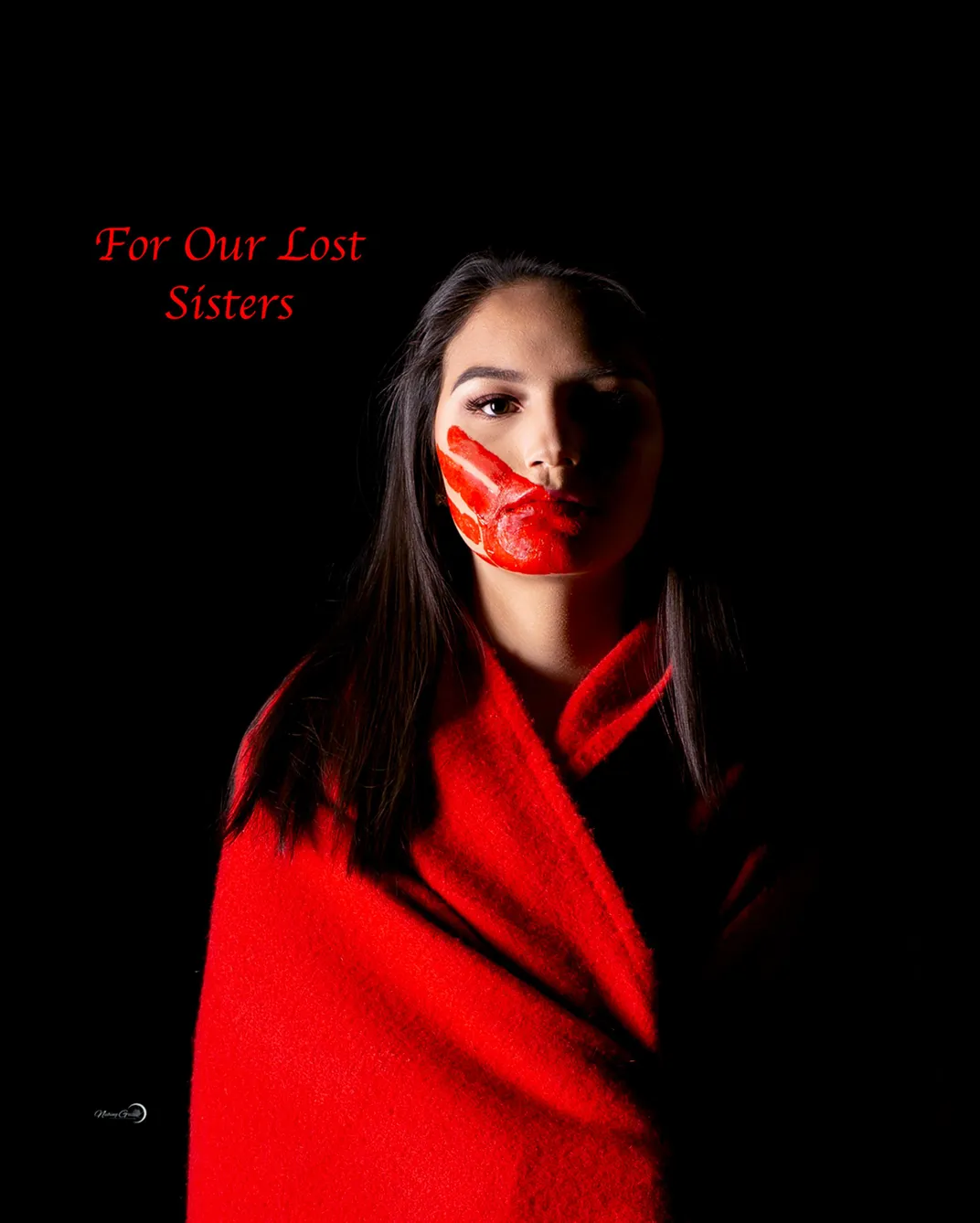Portrait Project Memorializes Missing and Murdered Indigenous Women
A new exhibition available to view online features 94 photographs, as well as original artwork
Days after the United States House of Representatives passed a bipartisan bill addressing violence against Indigenous women, the Saginaw Chippewa Indian Tribe of Michigan launched an exhibition dedicated to those missing and murdered.
Titled “Boontak! (Stop it!): Stolen Daughters of Turtle Island” (an Indigenous name for the North American continent), the show “seeks to raise awareness about the atrocities of the MMIWG”—Missing and Murdered Indigenous Women and Girls—“crisis impacting Tribal communities,” according to a statement.
Featuring 94 portraits of Native women and girls, including U.S. Representative Deb Haaland, who offered to stand in for the missing and deceased, “Boontak” debuted virtually on Friday, September 25, and will remain on view at the Ziibiwing Center of Anishinabe Culture & Lifeways in Mount Pleasant through next spring.
Saginaw Chippewa photographer Marcella Hadden collaborated with granddaughter Christina Benz to take the portraits over the course of three months in 2019, reports Cole Waterman for MLive. In addition to the pair’s photographs, the exhibition features original paintings, drawings, sculptures, graphic art and beaded medallions.
“I didn’t choose the subject of the photographs—it chose me, and the community chose it,” Hadden tells the Art Newspaper’s Gabriella Angeleti. “I put out a call on social media and asked women in the community if they would like a free photograph in order to raise awareness for MMIWG, and got an overwhelming response. I shot more than 100 portraits, including one of … Haaland, who has been at the forefront of the new [legislation].”
Violence against Indigenous women is a prevalent—and oft-overlooked—issue. On some reservations, women are ten times more likely to be murdered than the national average, as Maya Salam pointed out for the New York Times last year. And, in 2016, a survey funded by the National Institute of Justice found that 84.3 percent of American Indian and Alaska Native women (versus 71 percent of non-Hispanic white women), or more than 1.5 million individuals, had experienced violence in their lifetimes.
Politicians are increasingly making an effort to combat this “epidemic of violence.” In September, the House unanimously passed Savanna’s Act, which outlines protocols for law enforcement and requires federal agencies to update databases detailing violence against Indigenous women, reports Nora Mabie for the Great Falls Tribune. The legislative body also passed the Not Invisible Act, which aims to “increase coordination efforts to reduce violence against Native Americans,” according to Chelsey Sanchez of Harper’s Bazaar.
/https://tf-cmsv2-smithsonianmag-media.s3.amazonaws.com/filer/18/ae/18ae444e-bb2b-4598-ab8d-a01852040a67/gettyimages-1098389444.jpg)
A similarly focused artwork—Jamie Black’s the REDress Project—was shown at the Smithsonian’s National Museum of the American Indian last March. The installation responds to the plight of missing or murdered Aboriginal women in Canada, who are represented by 35 red dresses of various colors, shapes and sizes; seeing the variety of different dresses may help viewers recognize the scale of deaths and disappearances, as well as serve as a cathartic experience, Black and the museum’s deputy director, Machel Monenerkit, told Smithsonian magazine’s Alicia Ault at the time.
“Boontak” also builds on “Walking With Our Sisters,” an “art memorial installation” conceived by Métis artist Christi Belcourt in 2012, reports the Art Newspaper. The artwork featured more than 1,763 pairs of moccasins organized to call attention to violence against Indigenous women. The team behind the new exhibition, which is available to explore online, hopes that it will similarly raise awareness about the issue.
“MMIWG is affecting every Indigenous community,” the statement notes. “ … The [exhibition], both somber and hopeful, seeks to express the pain of the epidemic, draw attention to MMIWG cold cases, reduce future disappearances and deaths, and offer a point of healing.”
“Boontak! (Stop it!): Stolen Daughters of Turtle Island” is on view at the Ziibiwing Center of Anishinabe Culture & Lifeways in Mount Pleasant, Michigan, through May 5, 2021.
/https://tf-cmsv2-smithsonianmag-media.s3.amazonaws.com/accounts/headshot/Isis_Davis-Marks_thumbnail.png)

/https://tf-cmsv2-smithsonianmag-media.s3.amazonaws.com/filer/9e/56/9e56d223-d737-4707-916a-b458eba5b9fb/28-dany_sineway.jpg)
/https://tf-cmsv2-smithsonianmag-media.s3.amazonaws.com/filer/2a/bc/2abc9442-84fd-43ca-9e04-391469fec870/62-deb_haaland.jpg)
/https://tf-cmsv2-smithsonianmag-media.s3.amazonaws.com/filer/9a/02/9a020645-b378-41c2-bb7a-1521124b0923/66-kiersten_flores.jpg)


/https://tf-cmsv2-smithsonianmag-media.s3.amazonaws.com/accounts/headshot/Isis_Davis-Marks_thumbnail.png)